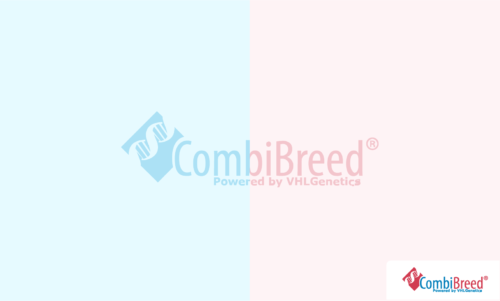Curly coat
Like all mammals, a dog’s hair is primarily composed of the protein keratin. Mutations in genes responsible for encoding keratin can lead to alterations in the shape and texture of individual hairs, consequently impacting the overall appearance of the coat. One such example involves a recessive mutation in the keratin 71 (KRT71) gene, which causes the development of a curly coat instead of a straight one.
Inheritance
There exist two identified variations of the KRT71 mutation. The first variant, labeled c^1, is specific to the Portuguese Water Dog, while the second variant, c^2, is observed in breeds like the Bichon Frise, Chesapeake Bay Retriever, Curly Coated Retriever, and Spanish Water Dog that are known for their curly coats. It’s important to note that not all curly-coated dogs carry these mutations, indicating the likelihood of additional undiscovered curly-coat mutations.
Dogs with this mutation exhibit a curly-haired coat as opposed to having straight or wavy hair. Additionally, dogs affected by the long-haired mutation (FGF5) will have longer curls in their coat.
Relevant tests
- H681
- H921
